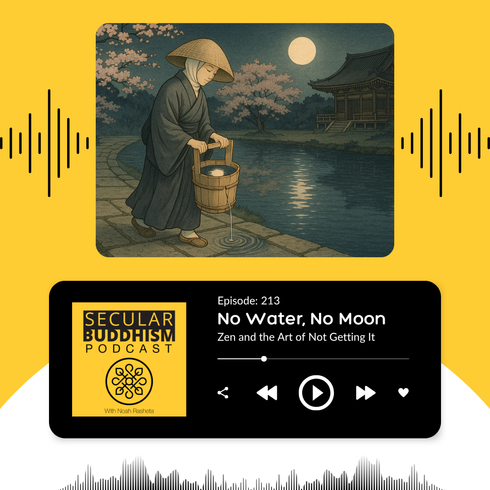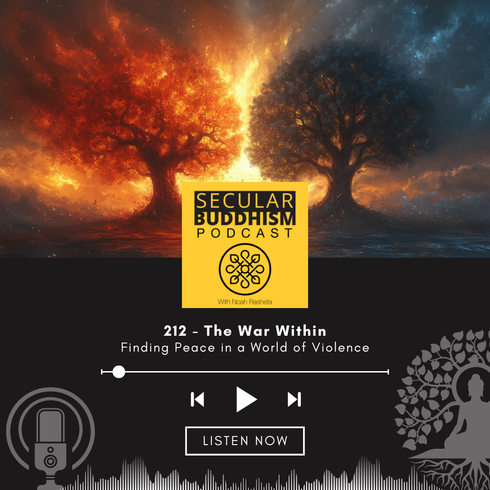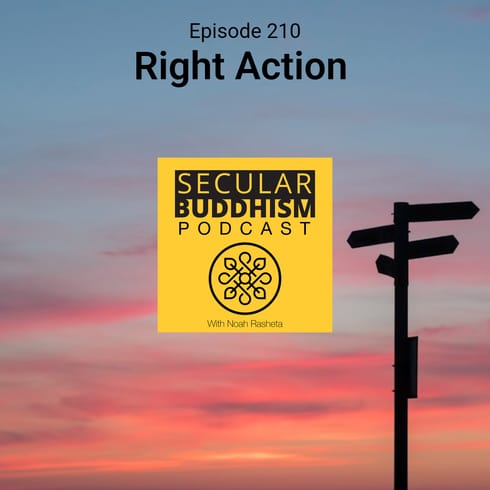
In my latest podcast episode, I explore a topic that touches every human being: suffering. But don't worry – this isn't a gloomy exploration. Instead, I'm looking at how we can transform our relationship with suffering and potentially find unexpected joy along the way.
Understanding Suffering in Buddhism
In Buddhism, suffering – or 'dukkha' – isn't just about major tragedies. It encompasses everything from stubbing your toe to feeling stressed about work. The Buddha taught that suffering is a universal part of the human experience. It's something we all deal with, regardless of who we are or where we come from.
But here's where it gets interesting: Buddhism doesn't just say, "Life is tough, deal with it." Instead, it offers us tools to work with our suffering and transform our relationship with it.
'No Mud, No Lotus' - A Powerful Perspective
One beautiful perspective I discuss comes from Thich Nhat Hanh. He often taught "No mud, no lotus." Just as a lotus flower needs mud to grow, we need our difficulties to develop wisdom and compassion. He suggests that if we know how to make good use of suffering, we can produce happiness.
This doesn't mean we should seek out suffering, but when it inevitably comes, we can learn to work with it rather than just trying to escape it as quickly as possible.
Practical Approaches to Working with Suffering
In the episode, I explore several practical approaches:
- Mindful Acknowledgment: This means really paying attention to our experience of suffering, without immediately trying to change it or push it away. It's like saying to yourself, "Okay, this is tough right now, and that's okay."
- Leaning In: I discuss Pema Chödrön's idea from her book "When Things Fall Apart," about "leaning into" our difficult emotions rather than trying to escape them. Counterintuitively, when we allow ourselves to fully feel our pain or discomfort, it often loses some of its power over us.
- The Two Arrows: I explain how the first arrow is the unavoidable pain of a situation, while the second arrow is the suffering we add through our reaction to the pain of the first arrow. By recognizing the difference, we can often reduce our overall unnecessary suffering.
- Cultivating Compassion: I suggest treating yourself with the same kindness you'd show a good friend when you're suffering.
- Remembering Impermanence: I remind listeners that when you're in a tough situation, it can help to remember that this too shall pass.
Changing Our Perspective
One of the most liberating aspects of this approach, in my experience, is recognizing that both joy and suffering are temporary. This understanding can help us appreciate the good moments more fully and not get so caught up in the difficult ones.
I emphasize that the goal isn't to eliminate suffering entirely – that's not possible. The goal is to change our relationship with it, to learn from it, and maybe even find some unexpected growth or insight along the way.
Conclusion
I conclude by reminding listeners that just like a lotus needs mud to grow, our challenges can be the very thing that helps us develop wisdom, compassion, and a deeper appreciation for life. So the next time you find yourself knee-deep in the mud of life, take a breath, and see if you can spot any lotus buds starting to emerge.
I encourage you to take these ideas and play with them in your own life. See what resonates with you and what doesn't. Remember, Buddhism isn't about accepting a set of beliefs; it's about investigating your own experience and seeing what you discover.
Listen to the full episode for a deeper exploration of these concepts and more practical tips on transforming your relationship with suffering. And as always, keep exploring and stay curious!



